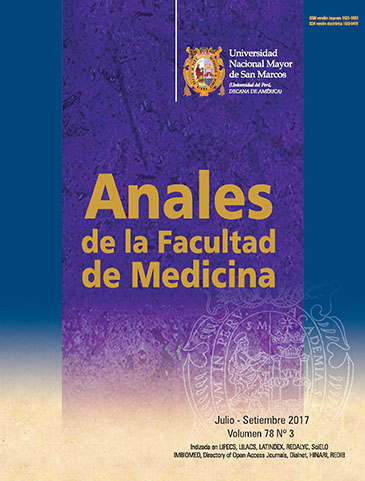Exponential chaotic law of cardiac dynamic systems for Holter evaluation: 16 hours
DOI:
https://doi.org/10.15381/anales.v78i3.13761Keywords:
Law, Chaos, Chaotic Law, Fractal, Cardiac Dynamics, Diagnosis.Abstract
Introduction: In a previous study, a 16-hour reduction in the evaluation of the exponential law of chaotic cardiac dynamics was done, showing its effectiveness in the characterization of disease and normality. Objective: To confirm the clinical applicability of the exponential mathematical law to evaluate chaotic cardiac dynamics from the Holter registers in 16 hours, observing its diagnostic utility by reducing its evaluation time. Design: Cross-sectional observational study where the electrocardiographic parameters were evaluated using inductive mathematical methodologies with statistical confirmation. Methodology: 100 Holter records were taken with different types of pathology, and 40 Holter that were diagnosed as normal. For each Holter, a chaotic attractor was constructed, and measuring their spaces of occupation and fractal dimension, the mathematical evaluation to differentiate normality of disease was applied. Finally, measures of diagnostic concordance were made with respect to the gold standard. Results: The spatial occupation of all the attractors was within the expected values; the normal records had values in the grid between 205 y 423. For the records with acute disease, these values ranged from 21 y 65; and for chronic disease registries these values ranged from 104 y 195. The values of sensitivity and specificity were 100% and the Kappa coefficient was 1. Conclusion: The present study shows the clinical applicability of this methodology for the evaluation in 16 hours of continuous electrocardiographic or Holter registers.Downloads
Published
2017-11-30
Issue
Section
Artículo Original
License
Copyright (c) 2017 Javier Rodríguez, Jairo Jattin, Fernán Mendoza, Juliana Vásquez, Manuel Alejandro Garrido, Catalina Pallejá, Sarith Vitery, Rivka Felberman, Cristian Martinez, Mario Avila

This work is licensed under a Creative Commons Attribution-NonCommercial-ShareAlike 4.0 International License.
Those authors who have publications with this magazine accept the following terms:
- Authors will retain their copyrights and guarantee the journal the right of first publication of their work, which will be simultaneously subject to Creative Commons Attribution License that allows third parties to share the work as long as its author and its first publication this magazine are indicated.
- Authors may adopt other non-exclusive licensing agreements for the distribution of the version of the published work (eg, deposit it in an institutional electronic file or publish it in a monographic volume) provided that the initial publication in this magazine is indicated.
- Authors are allowed and recommended to disseminate their work over the Internet (eg: in institutional telematic archives or on their website) before and during the submission process, which It can produce interesting exchanges and increase quotes from the published work. (See El efecto del acceso abierto ).
How to Cite
1.
Rodríguez J, Jattin J, Mendoza F, Vásquez J, Garrido MA, Pallejá C, et al. Exponential chaotic law of cardiac dynamic systems for Holter evaluation: 16 hours. An Fac med [Internet]. 2017 Nov. 30 [cited 2025 Jun. 19];78(3):292-7. Available from: https://revistasinvestigacion.unmsm.edu.pe/index.php/anales/article/view/13761



